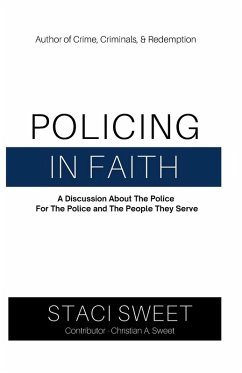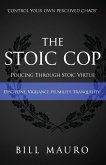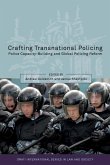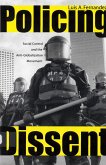More often than not, when policing is discussed morality never enters the conversation. Yet police officers are not only enforcers of the law but they too are enforcers of morality having been given the legal authority to enforce the laws of the land. Those laws were established by both state and federal officials who have already determined what is right, wrong, acceptable and unacceptable conduct, and thereafter codified that conduct into statutes and ordinances that we, the people, must follow, and officers must enforce. ¿¿¿¿This book delves into the codified conduct found within the penal code as well as that within scripture while also examining other points of societal contention such as Tennessee v. Garner, Graham v. Connor or the fact that there is... ¿¿¿No 'universally agreed upon definition of use of force'. Federal courts have yet to clearly define a lawful order. There is currently no, "federal statutory provision that defines probable cause, yet it's considered a standard in criminal law. On top of the fact that... There is no federal statutory provision, state statute, or clear definition of the known facts, possible beliefs, and/or plausible reasons and/or examples of the required facts, beliefs, and or reasons needed that would lead an officer to have probable cause, give a lawful order, or use bodily and/or deadly force. Not only that but Policing in Faith also unravels the code of silence, provides examples of biblical enforcement, emphasizes the importance of soul care while also leading LEO's into repentance and into the protective, loving arms of God, the Father. This is not a one-sided us-versus-the-police type of book. It is an all-inclusive body of work about the police, for the police, and the people they serve.
Bitte wählen Sie Ihr Anliegen aus.
Rechnungen
Retourenschein anfordern
Bestellstatus
Storno








